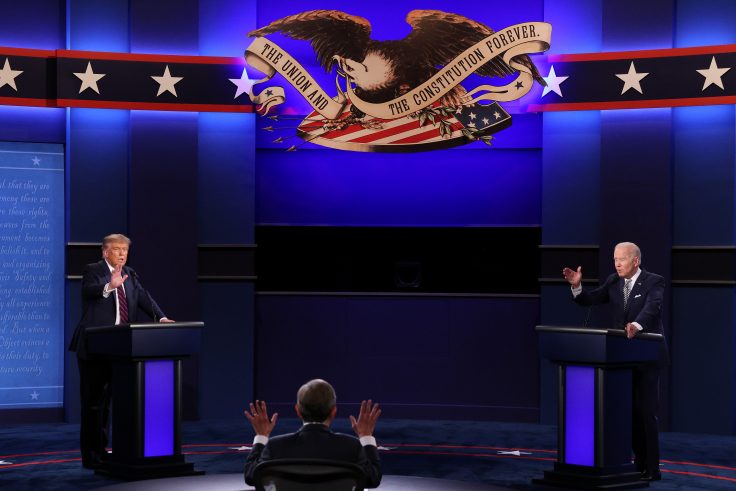Over coffee this morning I read a fascinating interview with Martin Gurri, the former CIA analyst who first noticed the seismic impact of social media on world politics. The author of The Revolt of the Public and the Crisis of Authority in the New Millennium, Gurri studies the fracturing of discourse and the frantic attempts of elites to reassert control over public life. "We are in the first stages of a gigantic transformation from the industrial mode of information and communication to something that doesn't even have a name yet," Gurri said. "It's an extinction event for the narratives. The ideal of representative democracy is in trouble, for example, and the institutions around that ideal will have to be reformed if they wish to retain any sort of legitimacy."
The first presidential debate offered plenty of evidence for Gurri's thesis. No one who watched the 90-minute spectacle would be able to arrive at the conclusion that representative democracy is in good shape. And the various interpretations of who "won" the cross-talk and insults and pleas from the moderator to adhere to the rules were as splintered as the contemporary political landscape. As I scanned my Twitter feed, President Trump's fans (and even one of his most prominent detractors) were sure that he dominated his opponent. But Joe Biden's supporters were equally convinced that the former vice president was dignified and sensible in the face of Trump's verbal assault.
The conventional wisdom was that the debate would be the last chance for the president to change the dynamic of the race, where he has consistently lagged Biden in national and state polls. But if voters saw what they wanted to see, and heard what they wanted to hear, and have already made up their mind about the incumbent, would one debate (or three) make a real difference?
I'm skeptical, especially because large portions of the evening were incomprehensible. There was a lot of yelling. There were too many interruptions. The moderator had trouble controlling the participants, but who can blame him, since they did not seem overly interested in being controlled. I wonder how many of the voters who are disgusted with politics watched the debate in its entirety. Not a few people probably ended up being disgusted with politics as a result of the debate.
Who wins an unwatchable debate? The candidate who had the momentum to begin with. On a national level, that would mean Joe Biden. But the race is much closer in the battleground states, and the bases of both candidates were in all likelihood pleased with elements of what they saw in Cleveland. Biden's dodge on court packing, for example, left him vulnerable. I don't think the Trump boat parades are going to stop anytime soon. And there is also the question of whether you would want to win the first debate, since previous challengers who were thought to have done so—Mitt Romney, John Kerry, Walter Mondale—went on to defeat.
"There will be, at some point, new stories that take into account the new environment and ensure a return of trust in rulers and institutions," Martin Gurri told his interviewer. "The will to believe is real. The question, for me, is how much damage will be inflicted before that civilizational turning, and whether liberal democracy will still exist on the other side." What tonight's debate suggested is that the answers to Gurri's questions are (a) a lot and (b) only with the most strenuous and sustained effort.
